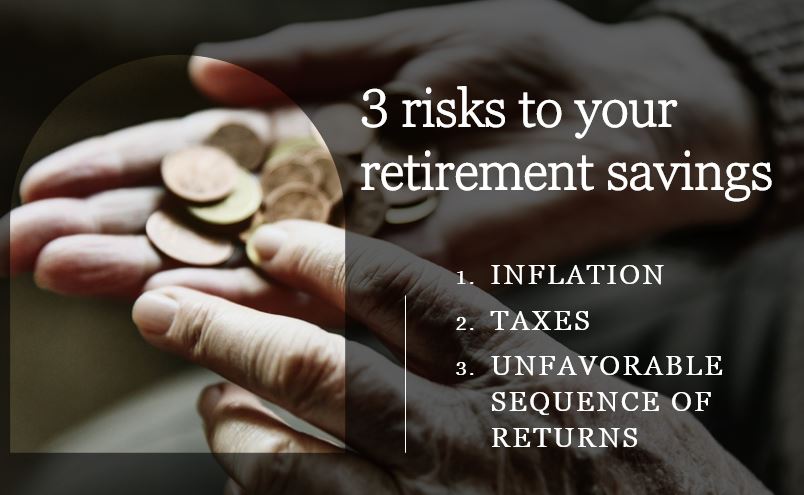Click here to listen to our Coach’s Corner segment where we discuss all things gifting.
Untucked Episode 84 – Gifting
Jeff Mastronardo: [00:00:00] What we got, Meg Coach’s Corner
Meghan Tait:. We’re gonna talk about gifting. Okay. And the transfer of wealth. So one of the more common planning scenarios we deal with is gifting both to people and charitable organizations. So what we wanted to discuss today is, um, how some of our clients choose to approach it. Some of the difficulties we often see in the conversation, and really the execution and maybe how we think some of those, um, difficulties or concerns can be lessened or alleviated.
Okay, so the reason this kind of came up is I recently met with a client who has more than enough money to be able to significantly and impactfully gift to family members, gift to organizations she’s passionate about, and she’s struggling with it. She’s struggling with it because she wants to. She wants to kind of [00:01:00] dictate how the money is used once it’s gifted.
She wants it to be, she uses the word responsibly. She doesn’t want it spent frivolously, and she’s struggling with. You know, kind of getting out of her own way, I guess, for, for lack of a better word, cuz it’s, it’s not at all a concern from a financial standpoint whether or not she can afford to do it.
But she is the daughter of, you know, great depression parents and has accumulated a ton of wealth, but just can’t really see through the gifting. Execution
Jeff Mastronardo: and it’s either gift with no restrictions or don’t
Meghan Tait: gift. That’s how we see it. Yeah, I mean the, the adding the restrictions just, we get to this place where people don’t do anything.
They keep talking about wanting to do it, but then they actually don’t do it.
Jeff Mastronardo: So you and I were talking about this and, um, the only solution I could think of, which I don’t think is a viable solution, right? If grandmom says to, to grandkid, I’m gonna gift you X amount of [00:02:00] money, uh, but I want you to use it responsibly and do this with it.
That’s not gonna work. So if the, the only other way I can think of is, is grandma is a part of those purchases. Like, Hey grandma, I’m gonna use your gift to buy a car. Well, grandma doesn’t want Johnny to go out and get a Corvette. Well then, okay, Johnny, I’ll go with you, like do some car research and I’m gonna go with you to the store and I’m gonna write the check.
That way she can control, you’re gonna get like a Kia instead of a Mercedes, but like, what, what, what grandparent? Who’s gonna do that? Right. Who, who’s gonna be involved in all of those Right. Decisions and, and just if you have enough money and your advisor tells you you do just gift or don’t. Yeah. Right.
If you feel like it’s gonna lead them to be irresponsible, then don’t. And I guess maybe now that I’m like thinking out loud as I talk, like that’s a real problem because if they don’t gift, then they’re gonna leave [00:03:00] more to the kids. And if you think they’re gonna be irresponsible when you give ’em 17 grand, well isn’t that more frustrating that they’re gonna be super responsible when you’re dead and you give them two and a half million, but I guess you’re dead, so who cares?
Yeah. I just won’t gift and then I’ll die and I won’t know what they did with it.
Meghan Tait: Yeah. Um. I, I, I, I don’t have, that’s it.
Jeff Mastronardo: Now I’m putting myself in their, in, like their spot. Like yeah, that’s a toughie. I guess I’d rather just give it to them and then be disappointed that they’re using it for whatever, but at least I, I, I was able to help them in some form or fashion while I was alive and watched him blow it on stupid
Meghan Tait: stuff.
I may be like oversimplifying it, but if it’s a genuine concern, having that conversation with the recipient of the gift. Like, Hey, I have an opportunity to help and I, I would like to see this money used thoughtfully or responsibly by whatever measure, or even if it’s just saying [00:04:00] those words like, aren’t most people like I.
Gonna be considerate of that. Maybe I’m giving too many people the benefit of the doubt, but like, I don’t know. In this case, like she’s talking about her grandchildren who are 30 years old, have kids of their own, like very likely the use is gonna be. You know, summer activities or paying the daycare bill.
Like I know that there are scenarios where the money is used incredibly irresponsibly. I’m not suggesting that it’s perfect all the time, but I guess in my mind, like you say how you feel to the person who’s gonna receive the gift and then you hope for the best.
Mike Traynor: Yeah, and I think, you know, Jeff, your, your example of the car is probably a little bit impractical to think grandmom’s going to the.
You know, Toyota dealer or whatever. But if it’s something like a down payment on a house, right, that’s specifically a check written that that’s part of that transaction, [00:05:00] it’s probably super helpful to the, to the kid or kids. Um, and that’s a great way to help somebody who’s younger, who otherwise maybe couldn’t afford to, to buy a house.
Um, Just writing a check though and giving, just giving money cuz you’d rather give it to ’em while you’re still alive. And the more substantial that check is, obviously the more problematic it it could be because it’s, um, at that point it might be spent fri frivolously or whatever. I don’t know. Um, to me I feel like the gifting thing, the smaller, the smaller gifts to me are.
Way more, way less should be, way less of an issue. I think when it comes to it, it’s really the encouraging, or not, maybe that’s not the right word, but, um, um, helping create potentially a situation where somebody just plays video games all day because they don’t have to get a job now [00:06:00] that there’s a lot of money come in their way or has come their way.
And maybe that leads into the other part of our conversation, which is, which is the, um, Where are we gonna talk about like the family planning, the family planning aspect, where there is a substantial inheritance, um, that may or may, may not be known about, and is it good or bad to talk about that as a family prior to that happening?
And yeah. What are the pitfalls there?
Jeff Mastronardo: Yeah, I’m a, I’m a big fan of having family generational planning discussions, right? Like, Mom and dad have a couple million bucks. They live very modestly. They have two kids. Those kids are gonna inherit two, 3 million bucks each. Um, I think, yeah, I, I think it’s, it’s in everyone’s best interest to have that conversation with, you know, son one and daughter one.
Like, look, we [00:07:00] we’re not going to go through our money. You’re gonna get $2 million at least when we die. Because I think that can help them now start to maybe modify their planning. Like maybe you don’t have to save as much in your 401k, or maybe you don’t have to struggle the way you’re struggling now because there is going to be an inheritance.
And we always tell people when we do our planning for people in their sixties, like you can’t bank on the inheritance. But I think that’s different. I think that that other generation didn’t have as much wealth as this generation does. So it’s like our clients will have like a million or 2 million bucks and they’re kind of on the cusp of being able to, to live comfortably.
And they may get an inheritance from mom for 400 grand, which can really kind of changed their life. Um, and we tell ’em, you can’t, you can’t bank on that. I’m talking about a bigger wealth transfer, um, to young, to a younger generation. I think it’s. It the, I think the conversation absolutely should be had.
Meghan Tait: Well, and, and the conversation. Maybe that’s what [00:08:00] we as Advi advisors can encourage to make what we were fir first talking about the gifting discussion easier, right? Like if there’s this open line of communication and mom and dad can say, Hey, you know, we don’t live your scenario. We don’t need our, a ton of our money.
We live very modestly. There’s going to be an inheritance. Well, maybe the kids are then raising their hands and saying, Like we need help with college funding in five years, so I don’t wanna wait 15 more for you to die. How about you contribute to your grandchild’s college education? Like maybe it allows for more, more opportunity to help while mom and dad are still here.
Cuz I keep coming back to that like, Wouldn’t you want to see if you could, wouldn’t you want to see your money positively benefiting your family? And to me, that opportunity should [00:09:00] outweigh maybe the one-off frivolous expense or the one vacation that you wouldn’t have sanctioned or you know, the upgraded car purchase.
Like to me, that opportunity. Maybe because we’ve now created that generational approach to the discussion, um, maybe it encourages more people to do it because I do believe a lot of the concern we talk about people having is a generational thing. The pe, the age of the, the demographic of the clients we see who can’t get over the hump are.
Like, I don’t think that’s going to be a perpetuated issue we deal with. Agree. I agree on. Does that make sense? Yeah, I agree a hundred percent. So maybe for now, the way that we can help again, like execute on these like thoughts or ideas is by having the rest of the family like actively participate in the conversation.
Jeff Mastronardo: I mean, I’ve, [00:10:00] there’s been many circumstances that I’ve personally been a part of where we’ve had those conversations. And it’s impactful when you, when you’re talking to mom and her boys and mom lives on her social security and a pension and has $400,000 in a Roth IRA and she’s 80 years old. Well, that Roth IRA shouldn’t be invested for the 80 year old.
Right. She’s never gonna use it. And I’ve, we’ve, we’ve had this conversation with clients. Yeah, let’s invest that 100% stocks for the next 10 years that you’re gonna be alive cuz it’s just. It’s going to grow more and it’s gonna be a bigger impact for these kids. Like that’s kids’ money. I’ve, I’ve said that a million times.
This is basically your kids’ money, so let’s invest it for them kids. Are you okay with that? And they’re always like, yes, let’s do that. Of course. Yeah. That’s why I just think it needs to be a bigger conversation. Um,
Meghan Tait: um, yeah, but my, I guess the issue I see most is that, The mom and dad [00:11:00] just don’t, they can’t wrap their brains or grasp the amount of wealth they have, right?
There’s the constant like, well, what if? What if, what if? And I can think of multiple scenarios where like, there isn’t a what if there isn’t a what if That could be put in front of me that I would. That would even concern me, right? So it it, it’s without concern that we can unequivocally say, give gift, invest for the kids and still doesn’t happen because
Jeff Mastronardo: those what ifs are never going to be something that’s just going to make you go.
Bankrupt. I mean, unless you were doing something really crazy stupid with your money. Right. But like, even like a concern that, like Mike brought up a few, a few months ago, like the, the, um, SVB debacle. Mm-hmm. And you know, your bank accounts and your money markets going below $1 share. Like, okay, but then that will get corrected and we’ll figure it out.
Right. The only [00:12:00] thing that’s like, the only thing that could happen that is a zombie apocalypse. So we, but we’re not, we’re not preparing for that. Right. Yeah. It’s, I think I agree with you, Meg. I think it’s generational. I think it will go away. I think the 60, the 55 to 60 year olds that we’re dealing with now Yeah.
Won’t have as big of a hangup when they’re 80. Yeah. I think they’ll get it unless they start going senile and like start losing their minds. Um, but that’s, it’s, it’s something that I think people should be talking about with mom and dad and with each other about their family’s wealth so that we can just be better at what we do.
Meghan Tait: Yeah, and, and I mean, we can only take it so far, right? We can only help, we can only help move the conversation. We can only give the ideas, but I mean, without someone willing to, to execute, it’s, it’s just a lot of talk. And I guess that’s where my frustration lies. There’s a lot of talk with certain situations recently for me, [00:13:00] and they seem like no-brainers and I don’t know how to.
Push anymore.
Jeff Mastronardo: Yeah. And I feel like there has definitely been more people that are willing to have that conversation. I feel like, yeah, let’s, 10, 15 years ago when I would say to someone, are you willing to like, you know, share some of this information with your kids and, and bring your kids in so they can understand the planet was like, no, I don’t want my kids to know how much money I have.
I, I feel like recently there’s been more acceptance of that. That’s true. I agree with
Mike Traynor: that. Mm-hmm. There is a threshold that just to before we leave this, yeah. Um, I feel like there’s a threshold of wealth at which it starts to be the, the, the issues become much more complicated. So talking about a few million bucks or right.
Five or 10 million. But when you’re talking about 5,000, you know, lots and lots of, of, of assets, you know, at that point you have real concerns about. Okay. Family planning. Our kids know that they’re inheriting just sure they don’t have [00:14:00] ever have to work. Their kids don’t have to work. How are we gonna get them to work?
How are we gonna create a work ethic in our, in our, their, our kids and their kids? And that, that kind of thing. So,
Jeff Mastronardo: um, I can’t help you with that. Michael. Yeah. What does Jay-Z say?
Meghan Tait: No money, no problem.
Jeff Mastronardo: Was that Jay-Z? No. Where’s that? Biggie? I think it was, I think it was, uh, uh, puffy, actually. Puffy and Mace.
Yeah, you might be right. I think Biggie was dead when that came out. His track was, uh, was added afterlife. Mm.
Meghan Tait: Should have consulted with the resident rap connoisseur. All right, well, no answers were found through that.
Jeff Mastronardo: Sorry.





